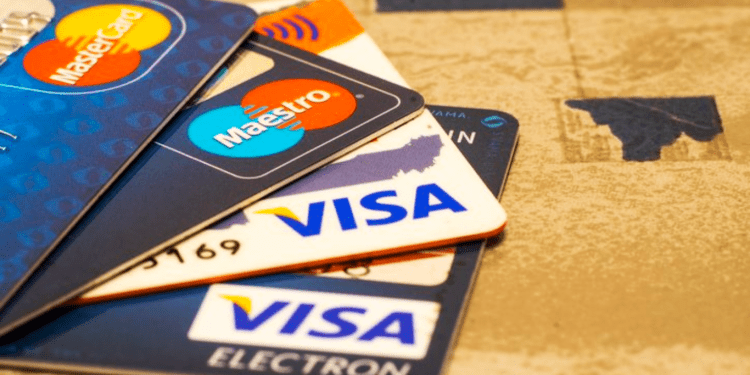- Mastercard and Visa are partnering with crypto companies to expand their payment networks and provide users access to global payment systems.
- Crypto partnerships offer traditional payments giants new sources of revenue, and crypto companies gain access to a wider payment network.
As cryptocurrencies continue to gain mainstream acceptance, traditional payment giants Mastercard and Visa are not staying behind in the race to partner with crypto companies. These partnerships offer the payments giants access to new sources of revenue while crypto companies gain access to a global payment network.
Examples of Crypto Partnerships with Mastercard and Visa
For instance, Mastercard and Visa have partnered with several crypto exchanges to launch debit cards that enable users to make purchases and pay bills with crypto. One such example is Binance, which recently launched a prepaid crypto card through a Mastercard partnership in Brazil, allowing residents to transact with crypto as long as they hold a national ID.
Binance and Mastercard had already teamed up for a prepaid card in Argentina last year. Spain-based Bit2Me also launched a Mastercard-powered debit card offering 9% cashback to customers. While Latin American exchange Bitso rolled out a Mastercard debit card in Mexico, offering crypto rewards on purchases.
Dubai-based Bybit is set to launch a new debit card on the Mastercard network to allow crypto payments in the U.S. and certain European states. Bybit will convert customers’ balances of Bitcoin, Ether, USDC, USDT, or XRP to U.S. dollars or euros before payment. Upon launch, the card will be available to residents of the U.K. and specific countries within the European Economic Area.
Mastercard’s Recent Partnership with Web 3 Firm Immersve Allows Users
To pay for virtual and physical goods and services using Mastercard’s network. Users pay for purchases using crypto in self-custodial crypto wallets. After a successful transaction, the users’ crypto gets converted to the USDC stablecoin for fiat settlement on the Mastercard network. Visa also continues to pursue projects related to stablecoin settlements.
Benefits of Crypto Partnerships for Payments Giants
By partnering with crypto companies, Mastercard and Visa stand to make a lot of money through fees. When a customer uses a crypto debit card, a small transaction fee is taken out of the customer’s wallet and goes to Mastercard or Visa. These fees can be substantial, so Mastercard and Visa are eager to partner with crypto companies.
The Mastercard and Visa duopoly is embracing crypto partnerships to expand its payment network and provide new sources of revenue. These partnerships with crypto companies offer users access to a global payment network, enabling them to make purchases and pay bills with crypto.
However, payment networks such as Mastercard and Visa favor centralized stablecoins over decentralized stablecoins. This is because centralized issuers Tether and Circle maintain the value of their coins using fiat reserves. In contrast, decentralized issuers preserve the value of their currencies through arbitrage or over-collateralization algorithms.
It is worth noting that Mastercard and Visa continue to monitor the crypto industry and pay attention to regulatory developments. Visa’s job is “to support an array of ways to pay and to study new technologies that may impact the future of payments.” At the same time, Mastercard’s efforts are focused on the underlying blockchain technology and how that can help make payment systems more efficient.














